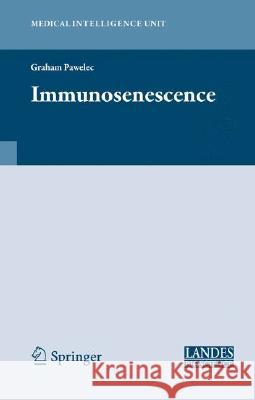Immunosenescence » książka
Immunosenescence
ISBN-13: 9780387768403 / Angielski / Twarda / 2008 / 194 str.
Human immunosenescence contributes to morbidity and mortality in later life. The age-associated increasing incidence of cancer and cardiovascular disease plateaus at around 80 years of age in industrialised countries, but death due to infectious disease continues to increase up to 100 years of age and beyond. Understanding the reasons for age-associated alterations to protective immunity in the elderly would facilitate the development of interventions to reconstitute appropriate immune function, increase responsiveness to vaccination and extend healthspan. The majority of the papers collected in this volume therefore address not only the mechanisms responsible for immune ageing in humans but consider what might be accomplished to redress the erosion of immune competence with age. The first problem facing the gerontologist investigating human ageing is their longevity: most studies are conducted in a cross-sectional manner, in which parameters of interest in elderly cohorts are compared to young controls. However, the ageing trajectories of people now 80 years old, born at the beginning of the 20th century, will have been very different in mostly unidentifiable ways from those born towards the end of that century. These differences include population genetics, nutrition, stress, disease, and of course, medical treatment, all of which make these two populations hardly comparable.











